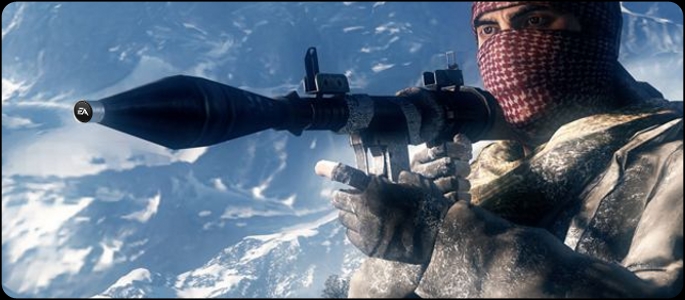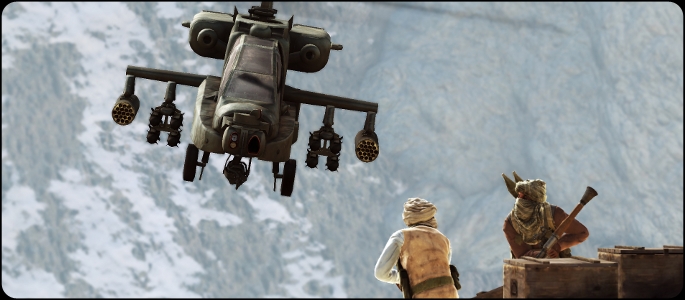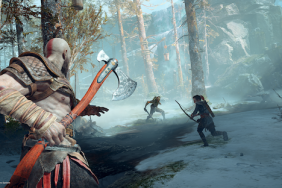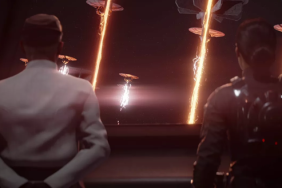
There’s been a major trend in the game industry happening lately that I am outright disgusted with. Although it’s truly nothing new, as of late, it seems far too commonplace. And while it’s innocent at heart at the moment, it’s quietly opening doors for censorship of the media we love so dearly.
Feedback. It’s essential to the evolution of a product. Smartphones are here because we want information at our fingertips, and there isn’t a better way to deliver that than through our most-beloved companions, our cell-phones.
Feedback works exactly same for the videogame industry. How many times have you yourself thought, “hey, it sure would be cool if my favorite videogame character had this ability”, only to find that in the sequel, that exact ability has been added? Developers constantly tweak online multiplayer modes in response to fan feedback.
That’s great. But what happens when feedback hurts a product more than it helps it? What about leaving the creative decision-making to the creative minds that have been providing us entertainment for the better parts of our lives? Since when did we reserve the right to bitch and moan about aspects of a game or a character, and do so until changes are made?
Despite my stance on the whole inFamous 2/new Cole fiasco, and more recently, the outcry against the new Dante in Ninja Theory’s Devil May Cry reboot, that isn’t what I’m so upset with here – though, that did light my fuse.
I’ll start with a tiny bit of back story. A few years ago, after many years of generic World War II-based shooters, a little game that you may or may not have heard of called Call of Duty: Modern Warfare, hit the scene. Sales were astronomical, and it spawned a sequel which also smashed sales records. Wanting a piece of the pie, EA brought back their Medal of Honor franchise, but this time featuring that same successful modern take on war.
EA with their revived franchise, wasn’t planning on messing around. Not only did they want the setting to feel like modern war, they tapped into real-life scenarios and situations akin to today’s military combat abroad. Again, to really bring that level of realism the gaming community so craves, EA put the soldiers up against what now-a-days is the most evil of forces: The Taliban.

For decades we’ve played games, as the good guys, facing off against the bad guys. We’ve encountered everything from Nazis to brain-eating zombies to aliens hell-bent on taking over our planet. Even as children, we played Cops and Robbers or Cowboys and Indians. As a juvenile, it’s obvious, someone just has to be the bad guy (though in the latter example, it’s a little bit more difficult to say who’s the real bad guy). It wouldn’t be much fun if you and your schoolyard buddies were just being cops. Who would you chase, arrest, interrogate, or take bribes from? Boooooo!
So what is so different about Medal of Honor’s playing as the Taliban in the multiplayer modes? Again, someone has to be the bad guy. The mere notion of playing as such an impure evil in a videogame has caused an outcry among the community. Top-level politicians made sure to denounce the game in public. GameStop’s refused to sell the game at their military base stores.
I’m not trying to be insensitive to families of soldiers who are actually fighting the Taliban abroad. To them, I am eternally grateful to the sacrifices that the soldiers and their families make on a daily basis to make this world a better place. They have every right to feel uneasy about letting people “play” as this evil entity.
But is it really so different, now that EA removed the “Taliban” from the game’s multiplayer modes and instead is calling them the “opposing forces”? They’re still bad guys trying to kill soldiers. And as a piece of media meant for entertainment, is this really so different from a blockbuster flick depicting the Taliban? Or a bestselling novel telling the tales of war-torn Afghanistan and the battle between US forces against the Taliban? Wouldn’t either of those two varieties of media paint a much more vivid, graphic picture? Let’s not forget that the media in question here is a “game”.
Now that EA has given in, it’s a mixed bag. I commend them for having respect for the families devastated by the ongoing wars abroad, but I also despise the fact that they changed their creative vision in response to public outcry. Let’s just hope that this isn’t a sign of things to come. Let’s hope that forum trolls aren’t allowed to change the looks of characters (oh wait). Let’s hope that politicians don’t see this as a weakness in our favorite form of media, and exploit it until we’re left with developers that aren’t allowed any creative vision. Let’s hope that videogames continue to push boundaries and bring us deep emotional experiences, and aren’t dumbed down in response to “feedback”.
There is a fine line when it comes to consumer feedback. Just enough, and you’ll ensure a better product. Cross that line, and you could hurt the experience.








